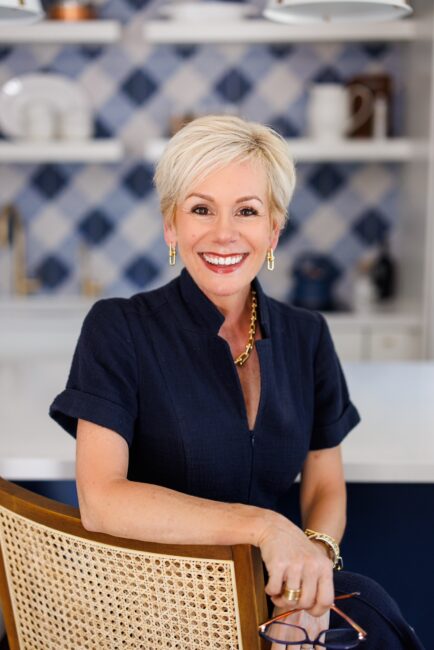Design and sustainability took center stage at the NKBA Sustainable Luxury Micro-Conference, held at Cosentino City in San Francisco. Presented by Fabuwood and hosted by the National Kitchen & Bath Association, this intimate gathering brought together designers, manufacturers, and industry leaders to explore the intersection of high design and responsible living.
With thoughtful panels, engaging conversations, and a curated product showcase, attendees left with actionable insights and meaningful connections.

What is Conscious Luxury?
During “The Conscious Luxury Conversation” moderated by Alisa Carroll of Veranda, panelists Kerrie Kelly and Elma Gardner offered deeply personal definitions of conscious luxury.
Kerrie shared that luxury should not be synonymous with cost, but with foresight and thoughtful problem-solving. Citing chef Thomas Keller, she emphasized that “luxury is something that’s there before you realize you need it”—from efficient product delivery to immersive client experiences. She praised brands like Fabuwood, whose West Coast operations reduce carbon impact while maintaining exceptional service.
Elma highlighted how luxury is shaped by the unique needs of the client. Her approach to sustainability is rooted in timeless design and specifying products from companies that invest in long-term, eco-conscious manufacturing, such as Crystal Cabinetry and Kohler.
The Designer as Storyteller and Educator
The conversation moved beyond materials to the designer’s role in guiding clients through sustainable choices. Kerrie emphasized storytelling—connecting clients to the people and history behind the products they bring into their homes. Whether it’s a multi-generational family-owned brand or a company innovating in wellness and energy efficiency, these stories enrich the home’s narrative.
Both Elma and Kerrie acknowledged generational differences in client priorities. Millennials value smart, resource-conscious features, while Gen X and Boomers seek long-term performance and classic reliability. Designers have an opportunity to tailor the message and method to each audience.
Transparency Over Greenwashing
The panel also addressed the challenge of verifying sustainability claims. While certifications are helpful, all panelists agreed that seeing is believing. Touring factories, witnessing manufacturing practices firsthand, and speaking with employees build trust and provide authentic insights to pass along to clients.
Kerrie summarized it best: “It’s about transparency with brands—so you can share their story with your client. That’s what builds confidence in their decisions.”
Final Takeaway
The NKBA Sustainable Luxury Micro-Conference offered a compelling glimpse into the future of design—one where beauty and sustainability go hand in hand. As Kerrie and fellow panelists demonstrated, it’s not just about selecting beautiful products, but about making informed, conscious decisions that align with a client’s values and enhance daily living.
For today’s design professionals, sustainability isn’t a trend—it’s a responsibility, a differentiator, and, increasingly, a defining aspect of luxury.






